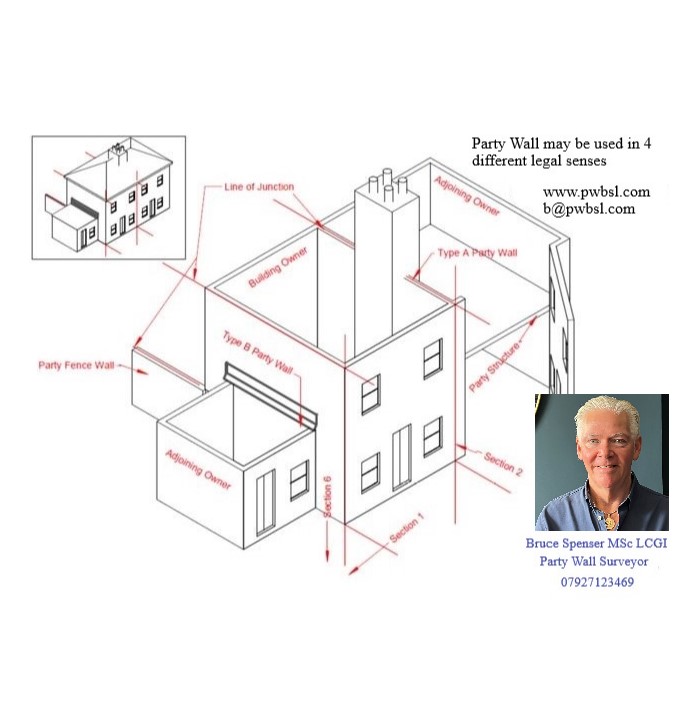Methods of Serving Party Wall Notices, Awards etc
Section 15 of the act describes methods for serving notices, awards etc required under the act. Party Wall Surveyors were trained to pedantically follow the methods of serving and did so – this is probably due to their lack of understanding of the law and how to read and interpret statute. They misinterpreted the English language!
However the most recent case law Night v Goulandris on the methods of serving notices, award etc allows any method as long as the server can guarantee the document has been served and it is recommended reading for all aspirant and serving Party Wall Surveyors and will enlighten surveyors on English Grammar and pedantry.
The methods of service specified in the Act are not exhaustive, the ‘may’ in s15 being permissive, Knight v Goulandris [2018] EWCA Civ 237, but email (or any other form of electronic) service is now covered by the 2016 Order and requires the express agreement of the recipient. In the Knight case the Court of Appeal noted that at common law ‘service’ requires ‘receipt’, (putting aside the special rules about post), but the Court did not expressly consider whether the arrival of an email in the recipient’s inbox is sufficient to constitute receipt or whether there is no receipt until the email is accessed.
15Service of notices etc.
(1)A notice or other document required or authorised to be served under this Act may be served on a person—
(a)by delivering it to him in person;
(b)by sending it by post to him at his usual or last-known residence or place of business in the United Kingdom; or
(c)in the case of a body corporate, by delivering it to the secretary or clerk of the body corporate at its registered or principal office or sending it by post to the secretary or clerk of that body corporate at that office.
[F1(1A)A notice or other document required or authorised to be served under this Act may also be served on a person (“the recipient”) by means of an electronic communication, but only if—
(a)the recipient has stated a willingness to receive the notice or document by means of an electronic communication,
(b)the statement has not been withdrawn, and
(c)the notice or document was transmitted to an electronic address specified by the recipient.
(1B)A statement under subsection (1A) may be withdrawn by giving a notice to the person to whom the statement was made.
(1C)For the purposes of subsection (1A)—
“electronic address” includes any number or address used for the purposes of receiving electronic communications;
“electronic communication” means an electronic communication within the meaning of the Electronic Communications Act 2000; and “specified” means specified in a statement made for the purposes of subsection (1A).]
(2)In the case of a notice or other document required or authorised to be served under this Act on a person as owner of premises, it may alternatively be served by—
(a)addressing it “the owner” of the premises (naming them), and
(b)delivering it to a person on the premises or, if no person to whom it can be delivered is found there, fixing it to a conspicuous part of the premises.
Estoppel
In its broadest sense, an equitable doctrine that prevents a party to a lawsuit from asserting a right or fact that is contrary either to the party’s: Past conduct. Previous allegations or denials.
Click for sample Notices, agreements, Awards, covering letters etc
Party Wall Surveyor serving Thanet and London
Third Surveyor serving England and Wales


